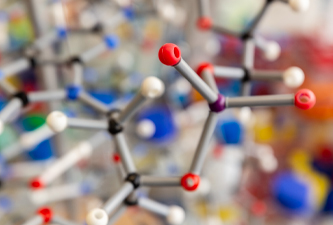Posted 1 December 2022

Congratulations to Dr Jacki Heraud-Farlow and Dr Kim Loh, who were both awarded Ideas Grants in the Australian Government’s National Health and Medical Research Council 2022 funding round.
The Ideas Grant scheme supports innovative research projects addressing a specific question.
Jacki and her team have been awarded more than $1 million over three years to build new understanding of the pathways controlling inflammatory responses.
One of the first steps in an immune response is the body’s recognition of common ‘molecular signatures’ of pathogens that allows it to initiate inflammatory pathways and recruit immune cells. Inflammation is an important part of the body’s defence and healing processes.
One of the molecular signatures of certain viruses is double-stranded RNA (dsRNA). However, because our own cells also produce dsRNA, our body has had to develop ways to distinguish between the two. If our body can’t make this distinction, it mounts an autoinflammatory response directed at its own dsRNA.
This happens in a disease called Aicardi-Goutières Syndrome (AGS), a fatal genetic childhood disorder that affects the brain, immune system and skin. In people with AGS, mutations in a gene called ADAR1 disrupts the ability of their cells to distinguish their own dsRNA and that of a virus. The consequence of this is an uncontrolled inflammatory response, which causes the degenerative disease. There is no known cure and limited treatment options.
“We have identified new genes that modulate and can prevent inflammatory responses to our own RNA,” says Jacki. “This grant will support us to build new knowledge of how dsRNA is recognised in cells. Not only can we apply this to understand and identify new therapeutic targets for AGS, it will also provide potential avenues to modulate the inflammatory pathways in other diseases as well as new perspectives on how our immune system responds to viral infection.”
Jacki’s team sits within the Cancer & RNA Biology Laboratory at SVI, headed by Professor Carl Walkley. She will be collaborating on this project with SVI colleague Dr Alistair Chalk and Dr Natalia Sampaio from the Hudson Institute of Medical Research.
Meanwhile, Kim Loh and his team have been awarded almost $1 million over four years to build knowledge of an enzyme that may be key to the development of obesity.
“Obesity is a major health concern worldwide; according to the AIHW’s latest available statistics, two in three Australians aged 18 and over are overweight or obese. That’s 12.5 million adults,” says Kim.
Obesity is a key risk factor for chronic diseases such as type 2 diabetes and cardiovascular disease. According to Kim, a lack of understanding about the fundamental mechanisms that regulate energy balance have hampered our ability to develop effective therapeutic strategies.
Kim and his team have recently discovered that an enzyme called SIK3, widely expressed in the brain’s hypothalamus, promotes obesity. This new funding will allow the team to investigate the metabolic function of this enzyme at the cellular and physiological levels in mice.
“Results from this study will provide critical new insights into the complex regulatory mechanisms of energy balance by SIK3 in the hypothalamus and pave the way for new therapies that promote weight loss,” says Kim.
Kim is collaborating on the project with colleagues from The University of Melbourne.